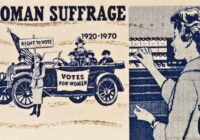The Spice Girls and the Women’s World Cup are parallel realities, and some will point out that women are still underpaid, undervalued and stuck in much the same position they were in during the early 1990s.
“Girl power” was never anything more than a heaven-sent answer to the question, “What do you want?” It was deliberately vague and quietly subversive, but without any agenda, manifesto or specific demands. It was, for those too young to remember, associated principally with the Spice Girls and, for all its fuzziness, was a sentiment that meant a great deal for young women growing up in the early 1990s.
On May 25, the Spice Girls started their world tour, which will see Geri Horner (née Halliwell), Emma Bunton, Melanie Brown and Melanie Chisholm getting back together — minus Victoria Beckham — for a second reunion. The singers, who have not performed live together since 2012, launched their tour in Dublin, with more than 70,000 people attending the event. Just over a week later, on June 7, we’ll witness another form of girl power: 24 national teams will compete in the FIFA Women’s World Cup. Over 720,000 tickets have already been sold.
Love or loathe the band, relish or reject football, both events remind us of the changes affecting and effected by women since the 1990s — in particular since 1995. That was when the Spice Girls left their management and signed with Simon Fuller. The band had formed a year earlier after the now-famous five women replied to an ad in the music trade magazine The Stage. The story goes that the Spice Girls generally, but Horner (then Halliwell), wanted more independence and autonomy in decision-making. The band broke into their manager’s office and made off with the master recordings of their songs.
In the same year, the then-president of football’s world governing organization, Sepp Blatter, pronounced: “The future of football is feminine.” Female would have been a better choice of adjective, but his meaning was clear enough. For all his faults, Blatter was an unwavering supporter of the Women’s World Cup. At least it seemed that way until, in 2004, he used the word again: “Let the women play in more feminine clothes like they do in volleyball,” he said. “They could, for example, have tighter shorts.”
Stamp on History
Let me share my own vignette from 1995: A journalist from a local newspaper, the Birmingham Post, interviewed me. I can’t remember the subject, but toward the end of the interview, he asked me about women’s football. He was incredulous when I told him I imagined it would go from strength to strength and become a popular sport. It was consistent with girl power. He almost laughed in my face: “You mean you think people will actually take them [women players] seriously when they watch them waddling about the field?” I remember it clearly because of his choice of verb; he used “waddling” again in his eventual article.
Where he saw female players awkwardly and clumsily trying to mimic men, I saw players striving for credibility and the empowerment that it confers. Of course, it could have all gone hopelessly wrong and could have briefly shown signs of life, then died a natural death when the menfolk flexed their muscles. Instead, it became the most popular women’s sport in history. BBC will cover every one of the 52 forthcoming World Cup games, and I guarantee no commentator will utter the word “waddling.”
The Spice Girls also made their stamp on history. They captured the spirit, the emotion and the defining mood of the time. Of course, cynics might argue that they were just the user-friendly puppets of men and that the girls themselves made little impact on women other than the teen followers who bought every commodity to which they attached their name. But the fact that, in 1998 — at the peak of their career — they sacked Fuller suggests they intended to be chatelaines of their own destiny.
It was a time when feminist voices were being heard, but never as boisterously as those of Horner et al. “When I was growing up, I got the feeling that the feminist movement was so extreme to the left that it wasn’t something I could connect with, so I didn’t understand what it truly meant,” Horner reflected. In 1996, the Spice Girls gave an interview to The Spectator, in which Horner and Beckham (then Adams), far from sounding revolutionary, lauded the monarchy, criticized Europe and proudly burnished their Tory credentials. “We Spice Girls are true Thatcherites,” Horner said. “Thatcher was the first Spice Girl, the pioneer of our ideology — girl power.”
The women’s tournament started in 1991, though it was not until 1999 that it got any global recognition and, even then, it was largely due to a moment when the USA’s Brandi Chastain celebrated scoring the winning goal and slid to her knees, while removing her shirt. (It later became known that this was not the spontaneous gesture first suspected: She was wearing a Nike sports bra). The image circulated around the world like a warning shot that signaled the arrival of a new force. It vies with the image of Geri Halliwell on stage at the 1997 BRIT Awards, her Union Jack dress making headlines around the world.
Parallel Realities
The Spice Girls and the Women’s World Cup are parallel realities, and some will point out that women are still underpaid, undervalued and, for all the thrilling progress of women’s football and the glitter of the Spice Girls, stuck in much the same position they were in during the early 1990s.
There’s no getting away from the fact that women footballers, despite their phenomenally fast advancement — and don’t forget that the Football Association banned women’s football in 1921, lifted in 1971 — earn less than their male counterparts. There is $4 million in prize money available to this year’s winners. This is much less than the $38 million harvested by the winners of last year’s men’s tournament, but double what was on offer at the last Women’s World Cup in Canada in 2015.
And, while several women in the entertainment industry now command more money and influence than men, it’s uncomfortable to many to notice how many of the girl bands that have followed the Spice Girls have made concessions. Mel Chisholm has offered her own opinion: “All young women want to look sexy and hot … We live in a narcissistic age — it’s 100 per cent worse than when I was in the Spice Girls.” She was talking about sexualized manner of presentation of today’s bands, in particular Little Mix. Chisholm banned her daughter (now 11) from watching videos of several girl bands that are overtly sexual when they perform.
Girl power is, of course, a slogan. It’s short, memorable and catalyzes thoughts about women drinking pints of beer, swearing and generally behaving in a way we ordinarily associate with men — like playing football. Yet there is a rub: A few more women at the fore of popular sport and entertainment can’t have any significant impact on the way power in society is distributed. Or can they? The Spice Girls, like women footballers, upended popular stereotypes and in a way that’s been overlooked, challenged young women to defy traditional expectations. It might seem slight, but it’s a world-changing idea.
The views expressed in this article are the author’s own and do not necessarily reflect Fair Observer’s editorial policy.
Support Fair Observer
We rely on your support for our independence, diversity and quality.
For more than 10 years, Fair Observer has been free, fair and independent. No billionaire owns us, no advertisers control us. We are a reader-supported nonprofit. Unlike many other publications, we keep our content free for readers regardless of where they live or whether they can afford to pay. We have no paywalls and no ads.
In the post-truth era of fake news, echo chambers and filter bubbles, we publish a plurality of perspectives from around the world. Anyone can publish with us, but everyone goes through a rigorous editorial process. So, you get fact-checked, well-reasoned content instead of noise.
We publish 2,500+ voices from 90+ countries. We also conduct education and training programs
on subjects ranging from digital media and journalism to writing and critical thinking. This
doesn’t come cheap. Servers, editors, trainers and web developers cost
money.
Please consider supporting us on a regular basis as a recurring donor or a
sustaining member.
Will you support FO’s journalism?
We rely on your support for our independence, diversity and quality.







